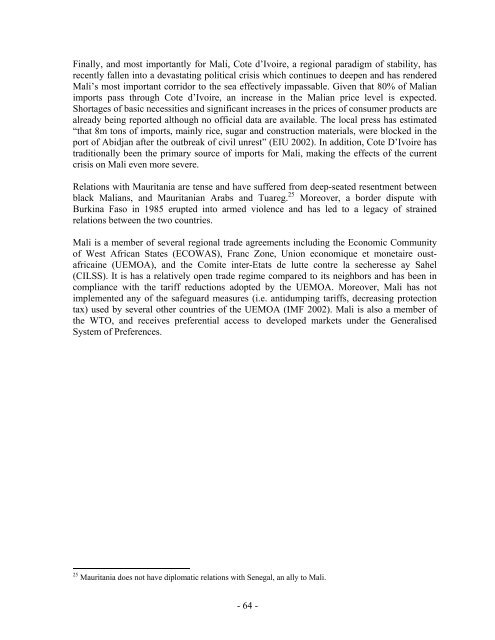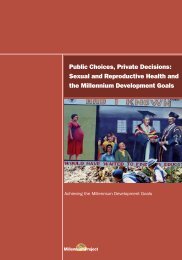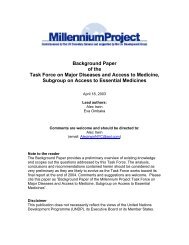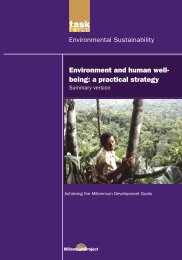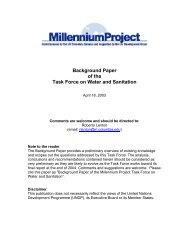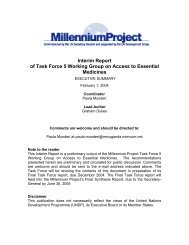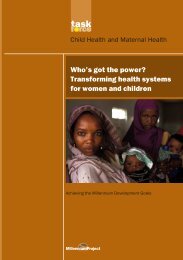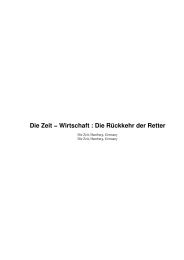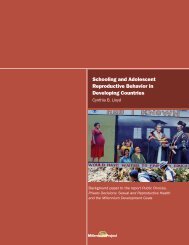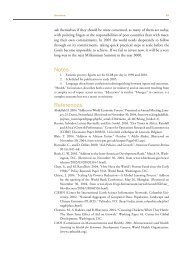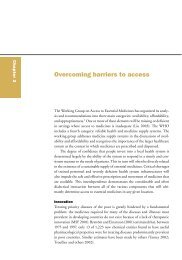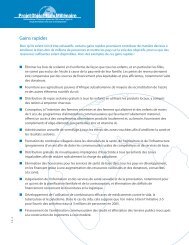the challenges facing landlocked developing countries: a case study ...
the challenges facing landlocked developing countries: a case study ...
the challenges facing landlocked developing countries: a case study ...
Create successful ePaper yourself
Turn your PDF publications into a flip-book with our unique Google optimized e-Paper software.
Finally, and most importantly for Mali, Cote d’Ivoire, a regional paradigm of stability, has<br />
recently fallen into a devastating political crisis which continues to deepen and has rendered<br />
Mali’s most important corridor to <strong>the</strong> sea effectively impassable. Given that 80% of Malian<br />
imports pass through Cote d’Ivoire, an increase in <strong>the</strong> Malian price level is expected.<br />
Shortages of basic necessities and significant increases in <strong>the</strong> prices of consumer products are<br />
already being reported although no official data are available. The local press has estimated<br />
“that 8m tons of imports, mainly rice, sugar and construction materials, were blocked in <strong>the</strong><br />
port of Abidjan after <strong>the</strong> outbreak of civil unrest” (EIU 2002). In addition, Cote D’Ivoire has<br />
traditionally been <strong>the</strong> primary source of imports for Mali, making <strong>the</strong> effects of <strong>the</strong> current<br />
crisis on Mali even more severe.<br />
Relations with Mauritania are tense and have suffered from deep-seated resentment between<br />
black Malians, and Mauritanian Arabs and Tuareg. 25 Moreover, a border dispute with<br />
Burkina Faso in 1985 erupted into armed violence and has led to a legacy of strained<br />
relations between <strong>the</strong> two <strong>countries</strong>.<br />
Mali is a member of several regional trade agreements including <strong>the</strong> Economic Community<br />
of West African States (ECOWAS), Franc Zone, Union economique et monetaire oustafricaine<br />
(UEMOA), and <strong>the</strong> Comite inter-Etats de lutte contre la secheresse ay Sahel<br />
(CILSS). It is has a relatively open trade regime compared to its neighbors and has been in<br />
compliance with <strong>the</strong> tariff reductions adopted by <strong>the</strong> UEMOA. Moreover, Mali has not<br />
implemented any of <strong>the</strong> safeguard measures (i.e. antidumping tariffs, decreasing protection<br />
tax) used by several o<strong>the</strong>r <strong>countries</strong> of <strong>the</strong> UEMOA (IMF 2002). Mali is also a member of<br />
<strong>the</strong> WTO, and receives preferential access to developed markets under <strong>the</strong> Generalised<br />
System of Preferences.<br />
25 Mauritania does not have diplomatic relations with Senegal, an ally to Mali.<br />
- 64 -


